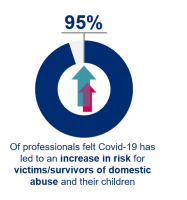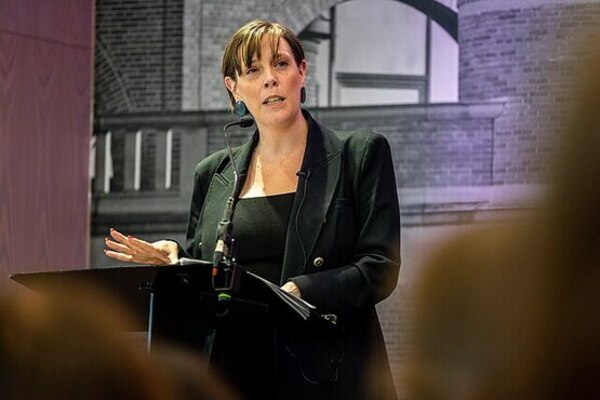A new report published today by the Drive Partnership (Respect, SafeLives, and Social Finance) reveals that professionals working with domestic abuse perpetrators during the COVID-19 lockdown were managing increased levels of risk while facing a range of challenges – from financial difficulties (one-quarter) to problems with technology (two-thirds). Despite this, almost all services continued to deliver and take new referrals during lockdown.
The report, based on the findings of a survey conducted in May, also reveals that professionals who work with domestic abuse perpetrators found multi-agency working particularly challenging during this time, with mental health services at the top of a list of other services that were difficult to contact. This came at a time when 87% of respondents saw increased mental health concerns in their caseload.

There were also unexpected findings on the types of interaction services were having with perpetrators. 80% of services said perpetrators were asking them for ‘coping strategies’. Whilst some services – like perpetrator services – are used to such requests for help from perpetrators, other services, such as the police, would not normally be asked for this kind of advice. The findings suggest services less used to offering ‘coping strategies’ to perpetrators might benefit from training on how to make the most of what could be an opportunity to influence behaviour positively.
Kyla Kirkpatrick, Director of Drive, said:
“The horrific impact of lockdown on families experiencing domestic abuse is now widely documented, highlighting the unquestionable need for more long-term funding and support for victims and survivors. Alongside increased support for victims and survivors, this survey demonstrates the importance of responding to those who are causing harm. For this work to be safe and effective, there is a need for increased multi-agency working and necessary resources to ensure every perpetrator has a response – from enabling ongoing support for those who are already working to change their behaviour through to heightened risk-management and monitoring of those presenting the highest risk of harm.”
Key findings were:
- Continued delivery in the face of challenge: The main challenges reported were problems with technology, increased demand for perpetrator services, and multi-agency working; however, three-quarters of services providing specific intervention for perpetrators managed to continue their work and take on new referrals during lockdown.
Increased risk: 95% of respondents felt COVID-19 has led to an increase in risk for child and adult victims and survivors of domestic abuse. - Financial challenges: A quarter of respondents who provide a specific perpetrator service reported financial difficulties, rising to over a third for voluntary sector organisations. A third of voluntary agencies survey furloughed staff.
- Challenges with multi-agency working: One-third of respondents noted challenges with multi-agency working. Those who were delivering a specific perpetrator service within a statutory organisation (such a policing, probation, or children’s social care) reported more difficulties than those in the voluntary sector. Of those statutory sector agencies reporting challenges, half of them had difficulties with mental health agencies and ‘perpetrator provision’. Whilst multi-agency working was challenging, it was also deemed by many as a solution to the extra pressures generated by the lockdown.
- Deepening of perpetrators’ concerns: 87% of respondents saw increases in mental health concerns of perpetrators. This came at a time when working with mental health agencies was difficult. Increased concerns around alcohol misuse and child contact were also very prevalent.
- Perpetrators asking for advice on coping with lockdown: 80% of respondents reported that ‘coping strategies’ were the most common form of support sought by perpetrators. Surprisingly, this figure also included requests for support of this kind from the police.
The survey had 55 responses in total – with 56% of respondents providing specific specialist services for perpetrators and 44% coming into contact with perpetrators in the course of other professional duties (for example, in policing or social care). Just over half of those responding were from a statutory organisation (53%) with two-fifths from a voluntary organisation. (42%) Responses from Wales were very similar to those from England. There was just one response from Northern Ireland, limiting our ability to draw any conclusions from this part of the UK.
The Drive Partnership of Respect, SafeLives and Social Finance is very grateful to all those who participated in the survey. Drive has been funded by a government grant through Respect to write this report based on survey responses from a broad range of statutory and voluntary sectors services working with perpetrators of domestic abuse.
Read the survey report below.









